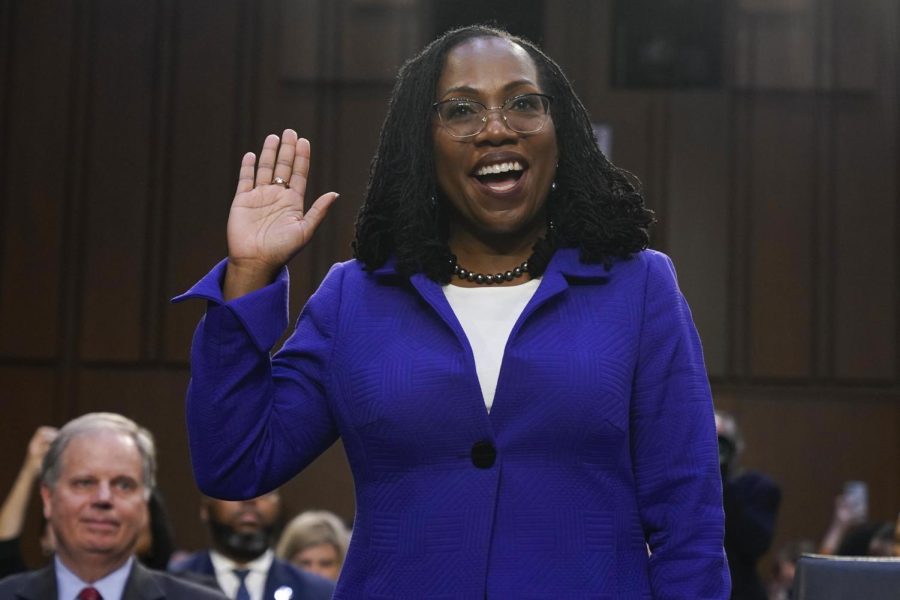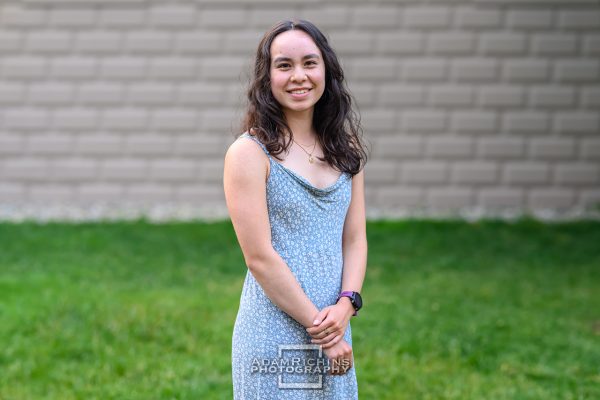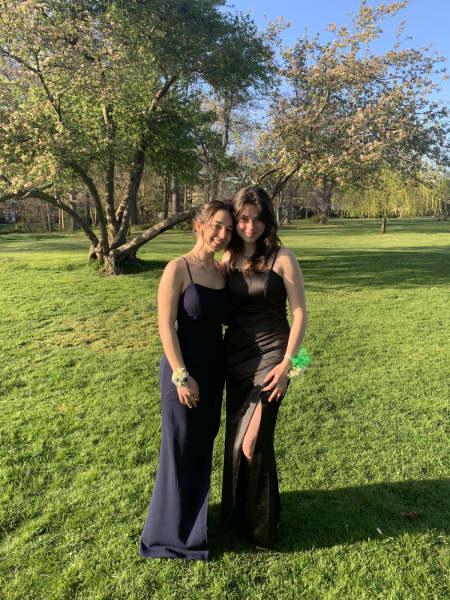The Historic Confirmation Hearing of Ketanji Brown Jackson
(Jacquelyn Martin / ASSOCIATED PRESS via Dallas News)
Ketanji Brown Jackson is confirmed as latest Supreme Court Justice two weeks ago.
233 years after the establishment of the Supreme Court, the United States finally has its first Black female Supreme Court judge. Justice Thurgood Marshall broke racial barriers in 1976 as the first African American judge; however, for Justice Ketanji Brown Jackson to make it to the highest honor as a judge is a celebration for not just Black women but all mothers who are also working women. While women currently make up 51% of first-year law students, this statistic steadily declines as lawyers reach important milestones in their careers. Only 20% of women are partners in private practices and two-thirds of female associates leave their firm within two years.
A large factor in this decrease of women in the law profession is due to the stigma of motherhood. Director of Learning and Leadership Mrs. Whitlock: “Women have always worked, as Mrs. Bachiochi (P’20, ‘21, ‘23) has argued in her 2020 book The Rights of Women: Reclaiming a Lost Vision. When women left the domestic sphere, outside of wartime work, they were encouraged to focus on the helping professions — teachers, nurses, etc. Fields like business, law, and government were some of the last professions women broke into. That work requires long hours and aggressive stances. When women assert themselves in those contexts, they’ve often been viewed as acting masculine or as being b*****s.” Justice Ketanji Brown Jackson herself was a victim of this bias as she progressed throughout her career and even during her hearing last month.
President Biden’s pledge to diversify the groups of judges across the United States was a key element of his presidential campaign — one met with a variety of different opinions. When Justice Stephen Breyer announced his plans for retirement on January 27 of this year, President Biden stood by his promise to nominate a qualified Black woman for the position. “I’ve made no decision except [that] the one person I will nominate will be someone with extraordinary qualifications, character, experience, and integrity. And that person will be the first Black woman ever nominated to the United States Supreme Court. It’s long overdue.”
Justice Ketanji Brown Jackson’s accomplishment is a testament to overcoming both racial and sexist obstacles in the workplace. Black women make up only 5% of first-year law students, 3% of associates, and less than 1% of partners, so the odds truly were against her. Justice Ketanji Brown Jackson graduated from Harvard University in 1992 with a degree in government — despite her guidance counselor’s advice to set her sights on lower-tier schools — and graduated from Harvard Law School in 1996. Her first “case” that she settled took place at Harvard University while she was a student. When a Confederate flag was placed on the windowsill of the dorms, members of the Black Students Association took action. It was Justice Brown Jackson who reminded her fellow members that, by taking hours to discuss the motivations behind the flag, they were losing valuable time to study. While Brown Jackson stated years later in her speech “Rising Through the Ranks: A Tale of Hard Work, Big Breaks, and Tough Skin” that the flag was unacceptable and the university did not react adequately, she also realized the importance of focusing on your goals without letting injustices get you off track.
While Justice Ketanji Brown Jackson’s race and gender have made her a role model for Americans, her credentials, career precedent, and impeccable character traits all demonstrated a thoughtful assessment of judicial matters during the Senate confirmation hearings. The ABA Standing Committee on the Federal Judiciary offered a unanimous vote on her status as a “well qualified” nominee for the Supreme Court position. She worked for 15 years as a public defender in Washington DC, eight years as a trial court judge in the D.C. District Court, and until recently as a judge on the US Federal Court of Appeals for the D.C. Circuit. Her experiences in these settings will enable her to have a unique perspective on judicial cases.
Over the course of 4 days, US Senators had the opportunity to question Justice Jackson on various topics to assess her aptness for the Supreme Court. It is typical for Republicans and Democrats to narrow in on certain topics throughout hearings, from Christine Blasey Ford’s charge of sexual assault during Justice Kavanaugh’s hearings to the importance of gender equity during Justice Barrett’s hearings. The GOP primarily questioned Justice Jackson about critical race theory and her previous decisions on child pornography cases as a Federal District Court judge.
Senator Ted Cruz (R-TX) focused on Jackson’s role on the board for Georgetown Day School in Washington D.C and hoped to gain insight into the school’s curriculum on antiracism and whether Jackson considered such teachings as critical race theory. Critical Race Theory, or CRT for short, is an academic teaching that race acts as a social construct and racism is not only implicated in individual bias and prejudice but is enabled in legal systems and policies. In an interview with the New York Times, Senator Cruz said: “I’m saying that Judge Jackson is on the board of a school that aggressively teaches critical race theory and that is an extreme and divisive theory that pits children against other children, divides us based on race, and teaches a false and revisionist history of our nation.” During the hearing, Senator Cruz brought various excerpts and images from books such as Ibram X. Kendi’s How to be an Antiracist and Antiracist Baby in order to question Jackson’s thoughts on whether Georgetown Day School’s teachings on race and diversity filed under CRT. He asked: “Do you agree with this book that’s being taught with kids that babies are racist?” to which Jackson responded: “I do not believe that any child should be made to feel as though they are racist or as though they are not valued or that they are less than, that they are victims, that they are oppressors. I don’t believe in any of that.” Justice Jackson continued to remind her audience that her work as a judge or a trustee on the school board did not involve evaluating CRT. In her closing statement during Cruz’s question, she said: “The idea of equality, justice, is at the core of the Georgetown Day School mission. It’s a private school such that every parent who joins the community does so willingly, with an understanding that they’re joining a community that is designed to make sure that every child is valued, every child is treated as having inherent worth, and none are discriminated against because of race.”
Republican senators spent a major part of their questioning time on Justice Jackson’s previous decisions on cases involving child pornography. Senators Josh Hawley (R-MO) and Lindsey Graham (R-SC) questioned Jackson on her jurisdiction to sentence offenders to less time in jail than the time recommended in federal guidelines or by prosecutors. In a tweet following one of the hearings, Senator Hawley said: “In every single child porn case for which we can find records, Judge Jackson deviated from the federal sentencing guidelines in favor of child porn offenders.” Hawley, along with other senators, expressed their concern for this “tendency” as individuals who are worried about the safety of their children or grandchildren. According to Doug Berman however, a leading expert on sentencing policy and law at the Ohio State University of School and Law, Judge Jackson’s sentencing on cases involving child pornography is ‘mainstream’ when contextualized with the fact that many other judges on lower courts, including judges nominated by a vote from Senator Hawley, have induced sentences with the same mindset as Jackson.
Apart from GOP questioning, many senators tried to define Justice Jackson’s judicial philosophy throughout the hearings; however, Jackson remained resolute in her impartiality. She repeatedly reminded the judiciary committee that with every case she reads the relevant briefs, listens to the facts of the case, and appropriately applies the law to the facts of the case. She said: “My philosophy is one in which I look at cases impartially, consistent with my independence as a judicial officer. I understand my limited role in the constitutional scheme and therefore take very seriously all of the constraints on the exercises of my authority that exist in our system.”
Despite difficult questions and tense moments, the room recognized the significance of Judge Jackson’s consideration to be a Supreme Court Justice. Senator Cory Booker (D-NJ) delivered a passionate speech in which he told Judge Jackson that in her, as a tenacious black woman, he saw his mother. Booker told Jackson: “You have earned this spot. You are worthy. You are a great American.” Jackson, in response to such comments, spoke about her hopes for her time as a justice to substantiate significance beyond delivering justice in the court. She said: “I hope to inspire people to try to follow this path because I love this country, because I love the law, because I think it is important that we all invest in our future. And the young people are the future, and so I want them to know that they can do and be anything.”
Spandana Vagwala ‘22 and Erica Brown ‘22, Co-Editors-in-Chief
22svagwala@montroseschool.org, 22ebrown@montroseschool.org
















